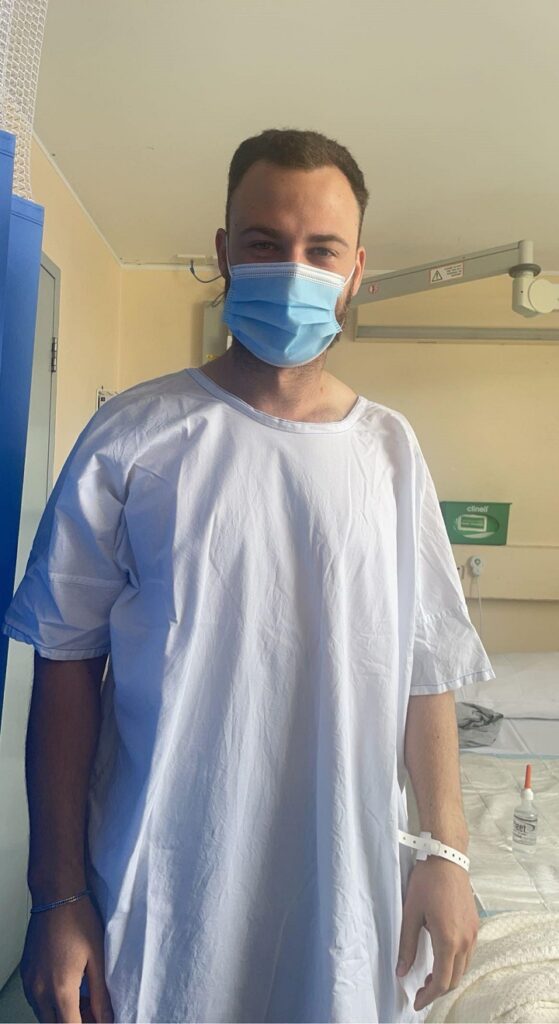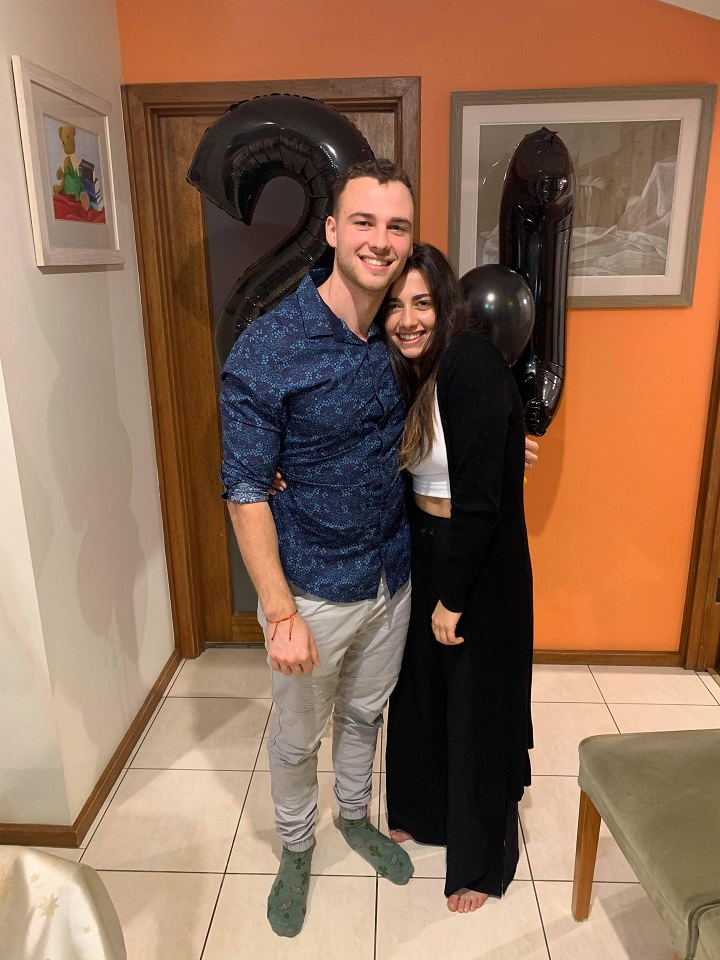“This disease has changed my life in ways I would never have anticipated”
Getting a call from your doctor on a Sunday can never mean good news. That was how I was informed that I had inflammatory bowel disease (IBD). It started back in October 22 when I was having issues using the bathroom. I saw my doctor, and we began the routine tests.
Following the results showing I had IBD, we completed further tests and began the standard medication and steroids to try and relieve my symptoms. Further investigation revealed I had Crohn’s Disease. I had inflamed tissue in my large intestine. Routine treatment and medications did not do much to resolve my symptoms. Rather, my condition deteriorated. My specialist recommended I try another form of treatment called sulfasalazine (DMARD).
However, my body likes to be different. Following a fortnight of isolation, due to Covid-19, I started to develop a rash. I woke up the next morning with a temperature of 40 degrees and the beginning of a spectacular, and rare allergic reaction. I was in the Royal Adelaide Hospital for 12 days. After various investigations, and after being treated by four teams from different disciplines, it was found that I was experiencing DRESS- Drug reaction with eosinophilia and systemic symptoms. This resulted in me looking like Violet from Charlie and the Chocolate Factory, and resembling the red Teletubby. I barely remember my time in hospital, as I was delirious.

Once I was out of hospital, I could not work for a further two months while I recovered, and I was still experiencing Crohn’s symptoms. I was not responding to medication, or was highly allergic to it, so started a medical trial.
This gave me access to a biologic medication (or a placebo), which would help me control my symptoms. I then began the routine of going to hospital for a 2-hour infusion every four weeks. This was eventually replaced with self-administering three injections. With this, my symptoms subsided, and my results look positive. However, towards the end of 2022, I experienced more symptoms and I found myself in hospital again. A call was then made to place me on a different biologic medication that was known to be effective against Crohn’s Disease. It worked and, now one year on, my 8-weekly infusion of Remicade, aka infliximab, help me to control my disease. I also take daily medication to suppresses my immune system.
For each person with Crohn’s Disease, the symptoms and experience can vary. For myself, I had to visit the bathroom regularly and urgently. At its worst, I averaged 10 visits a day and was passing blood on each occasion. My mornings consisted of being doubled over in pain, and I experienced bloated from the moment I woke up. I knew the location of every accessible toilet on my 20 minute drive to work, as I would regularly stop at least once and sometimes twice during my commute. I planned my life around being able to access the bathroom. I hated going out and socialising, and was often embarrassed and anxious that I would always have to use the bathroom. I was also worried about what people would think. I feared public transport and, since my diagnosis, I am yet to step on an airplane. I was mentally prepared to have an operation to remove my bowel, and permanently use a colostomy bag.
Currently, my condition is well managed, however everything is linked with stress management. If my body experiences too much stress, my symptoms return. If I am stressed at work, if I push my body too hard with exercise, or if I get sick, it can cause a flare. I also have to manage what I eat. I can’t eat spicy foods, drink alcohol, consume protein powders, oily foods or anything too processed, as this can cause issues. This disease has changed my life in ways I would never have anticipated. I went from working as a personal trainer, and working to compete in bodybuilding or powerlifting competitions, to being immunocompromised and having to consider the stresses that I place on my body.
I still train, but at a quarter of the amount I used to. I have a card that allows me to access bathrooms, and I automatically locate the bathroom when I enter a building. I also ensure that I know where proximal toilet stops are on any given road trip. This disease has impacted all aspects of my life and continues to do so today. It is often misunderstood and overlooked, but I hope that my story bring just that little bit more visibility for others who are experiencing a similar story to myself, and are suffering from this invisible disease.

To contribute to Matilda’s mycause campaign, which is raising funds on behalf of CCA, visit here.